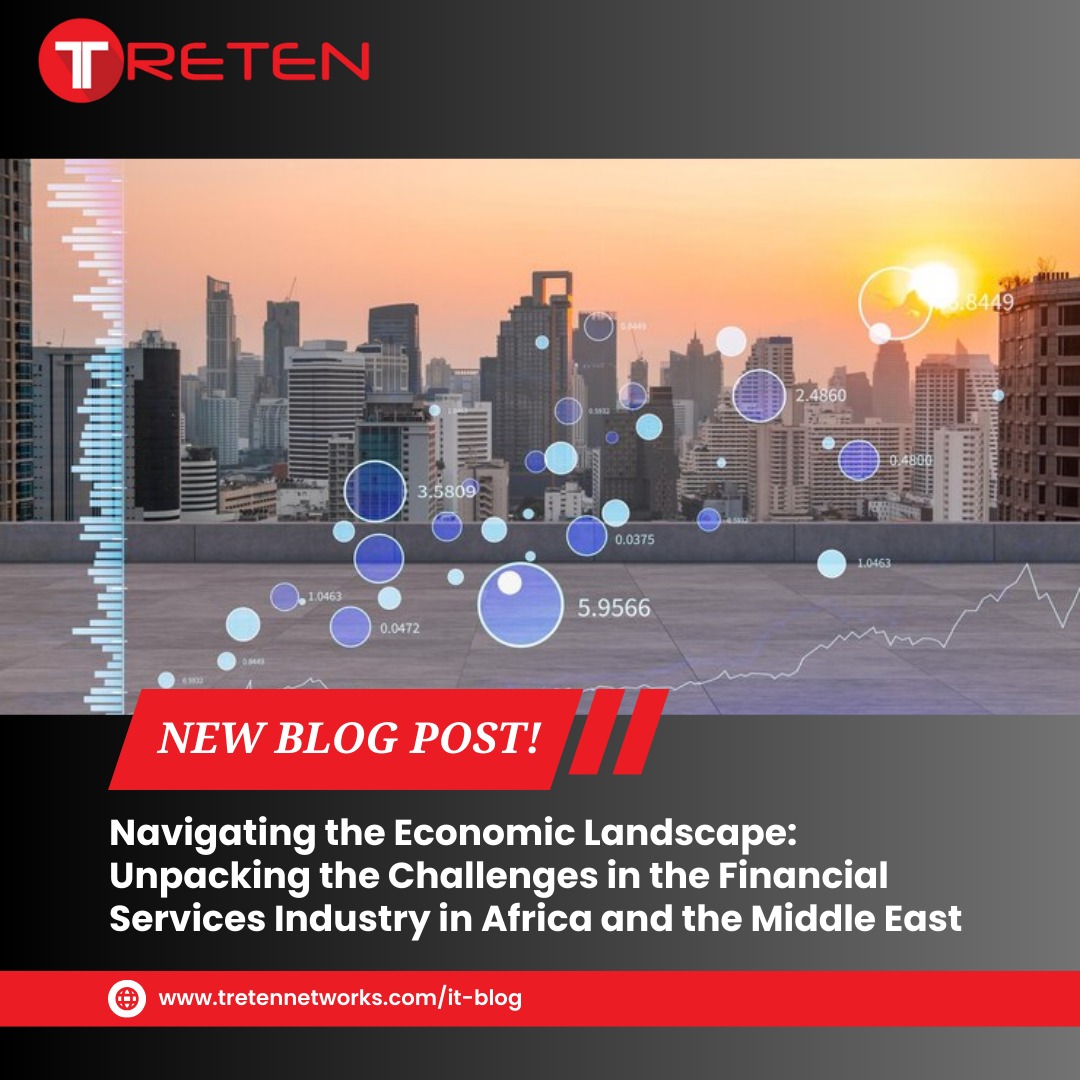Navigating the Economic Landscape: Unpacking the Challenges in the Financial Services Industry in Africa and the Middle East
The financial services industry (FSI) serves as the backbone of economies, enabling investment, growth, and innovation. However, each region faces unique challenges influenced by cultural, economic, regulatory, and technological factors. This article explores the significant challenges faced by the FSI in Africa, focusing on Ivory Coast, Ghana, Benin, Nigeria, and South Africa, and in the Middle East, focusing on the UAE.
1. Economic Instability and Currency Fluctuations
Africa
In Africa, economic instability is often driven by dependency on commodities and external market volatility.
-
Ivory Coast, Ghana, Benin, and Nigeria: West African economies heavily reliant on agriculture and exports such as cocoa and oil are vulnerable to global price fluctuations. Currency instability, such as the depreciation of the Ghanaian cedi and the Nigerian naira, increases the cost of foreign debt servicing and destabilizes banking operations. Regional financial systems must navigate these challenges to ensure resilience.
-
South Africa: South Africa’s financial sector operates within a dual challenge of being a robust financial hub while facing domestic economic volatility. Exchange rate fluctuations, influenced by global commodity prices and internal socio-political issues, strain the financial ecosystem.
Middle East
-
UAE: The UAE’s economy is relatively stable, with the dirham pegged to the US dollar. However, dependence on oil revenues exposes the financial sector to crude price fluctuations. Efforts to diversify the economy have gained momentum, but economic resilience remains tied to global energy markets.
2. Regulatory and Compliance Challenges
Africa
Regulatory frameworks across Africa are often fragmented and inconsistently enforced.
-
Ivory Coast, Ghana, Benin, and Nigeria: These nations face challenges in aligning with international financial standards, such as anti-money laundering (AML) and counter-terrorism financing (CTF) regulations. Limited digital infrastructure further complicates compliance efforts.
-
South Africa: South Africa boasts one of the most advanced regulatory frameworks in Africa, but the increasing complexity of global compliance standards, such as ESG reporting, presents challenges for local financial institutions.
Middle East
-
UAE: The UAE has made significant strides in regulatory alignment with global standards, particularly in AML/CTF measures. However, rapid regulatory changes demand agility from financial institutions, especially smaller players with fewer resources to adapt.
3. Technological Disruption and Cybersecurity Threats
Africa
The adoption of digital banking solutions is growing rapidly, but this brings new risks.
-
Ivory Coast, Ghana, Benin, and Nigeria: Mobile banking and fintech are transforming financial inclusion in West Africa. However, limited technical expertise and inadequate cybersecurity infrastructure expose the region’s financial systems to cyber threats.
-
South Africa: As a leading tech adopter in Africa, South Africa’s financial institutions face sophisticated cyberattacks. Investments in cybersecurity are crucial to protect against operational disruptions and data breaches.
Middle East
-
UAE: A global financial hub, the UAE is at the forefront of fintech and blockchain adoption. This technological advancement also makes it a prime target for cyberattacks, necessitating robust cybersecurity measures and collaboration between stakeholders.
4. Financial Inclusion and Access
Africa
Financial inclusion remains a pressing issue across the continent.
-
Ivory Coast, Ghana, Benin, and Nigeria: While mobile money platforms have expanded access to financial services, rural populations still face barriers such as low literacy rates and limited infrastructure.
-
South Africa: Despite high banking penetration, inequality and geographic disparities limit financial access for underserved communities. Efforts to address these gaps are critical for equitable growth.
Middle East
-
UAE: Urban populations in the UAE enjoy high financial inclusion rates, but expatriate and low-income groups often struggle to access affordable financial products. Tailored solutions are needed to bridge this gap.
5. Talent Shortages and Skills Gaps
Africa
Talent shortages are a significant obstacle to the growth of the FSI.
-
Ivory Coast, Ghana, Benin, and Nigeria: Brain drain and limited training opportunities create a scarcity of skilled professionals in areas such as risk management and digital banking.
-
South Africa: South Africa’s financial sector faces skills shortages in emerging fields like AI and data science, intensifying competition for talent.
Middle East
-
UAE: The UAE’s rapid fintech growth has created a demand for specialized skills in blockchain, AI, and cybersecurity. Institutions must invest in upskilling programs to bridge this gap.
6. Cultural and Market Dynamics
Africa
Cultural and linguistic diversity poses unique challenges for financial institutions.
-
Ivory Coast, Ghana, Benin, and Nigeria: Community-based savings groups and informal financial systems dominate many West African markets. Financial institutions must build trust and adapt services to local preferences to drive formal banking adoption.
-
South Africa: A multicultural society with significant income disparities, South Africa’s financial sector must navigate diverse customer needs while addressing socio-economic inequalities.
Middle East
-
UAE: The UAE’s multicultural population creates opportunities and challenges for financial institutions. Balancing the needs of local citizens and a diverse expatriate workforce requires innovative and inclusive financial products.
7. Environmental and Social Governance (ESG) Pressures
Africa
The push for ESG integration is gaining traction but faces resource constraints.
-
Ivory Coast, Ghana, Benin, and Nigeria: Awareness of ESG principles is growing, but limited resources and infrastructure impede widespread adoption. External support and investments are essential for progress.
-
South Africa: As a leader in ESG efforts within Africa, South Africa’s financial sector is under pressure to meet global sustainability standards. This requires balancing profitability with long-term environmental and social commitments.
Middle East
-
UAE: Sustainability initiatives, such as those driven by the Dubai Sustainable Finance Working Group, are advancing ESG integration. However, meeting these commitments requires collaboration among regulators, institutions, and investors.
The financial services industry in Africa and the Middle East faces diverse challenges, shaped by regional contexts and dynamics. By addressing these issues—from economic instability to technological disruption and ESG pressures—financial institutions in Ivory Coast, Ghana, Benin, Nigeria, South Africa, and the UAE can unlock growth opportunities and foster sustainable economic development. Collaborative efforts among policymakers, industry players, and international stakeholders will be critical in overcoming these hurdles.


